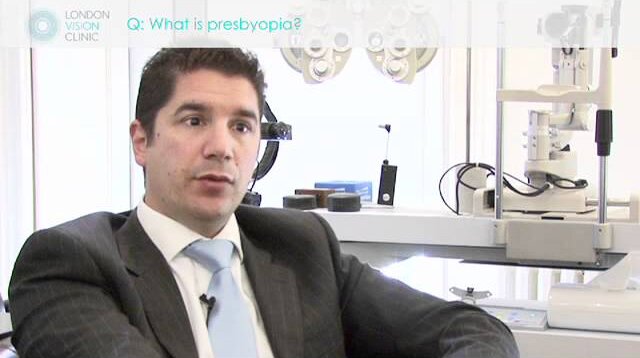The Curse of Ageing Eyes: What is Presbyopia?
Throughout our lives, we have all probably noticed vision loss in other people. It may have first been apparent in your grandparents as they squinted at the menus at family gatherings, or later with your parents as they suddenly acquire reading glasses that they never needed before. Yet, many of us don’t give the effects of ageing on our eyes much thought until we begin to notice the changes ourselves.
In the UK alone, it is estimated that almost half (42.9%) of adults aged 35 or older are affected by age-related vision loss, also known as Presbyopia. This common condition becomes increasingly common as we get older and is a normal part of the eye’s ageing process.
Presbyopia, which literally translates from Latin to “old eye”, occurs when the eye loses its ability to focus. This tends to happen gradually over a number of years; however, symptoms usually become noticeable around middle age.
What Causes Presbyopia?
As we get older, it’s not just our bodies that begin to lose their flexibility. As presbyopia progresses, the natural lens in the eye also becomes less flexible. While this happens, the muscles that pull the lens into focus also become less powerful causing a decline in the eye’s ability to focus at different distances.
Over time, this causes your near vision to deteriorate, meaning you will have difficulty focusing on things close to you such as text on your phone or in a newspaper. That explains why your grandparents were holding their menus so far away from their faces all those years ago, doesn’t it?
In the video below, Mr Glenn Carp tells us more about Presbyopia:

But, while presbyopia is a fate that all of us must come to terms with at some point, there are ways to correct this age-related refractive error.
Do You Need Reading Glasses?
If you’ve always had good eyesight, discovering that you now need reading glasses can be something of a shock. But the fact is, you’re far from alone (as you’ve probably noticed). From the age of 40 (on average), reading glasses will likely become the norm within your circle of friends.
Glasses work as an extension of your natural lens, reflecting light into your eye in a way that hits the retina effectively. This can practically eliminate short-sightedness and long-sightedness as well as astigmatism and – you guessed it – presbyopia.
Some people with presbyopia may opt for the more discrete option of contact lenses. But the truth is, no matter which external visual aid you choose to improve your presbyopic site, there are always going to be downsides.
The cons of glasses and contact lenses
Both glasses and contact lenses can be an extremely effective way to manage presbyopia; however, they also come with some problems.
Any glasses wearer will tell you that forgetting their glasses is a regular occurrence. Now imagine you have never had to wear glasses before – the likelihood of finding yourself sans glasses just went up! And that’s before you even start thinking about the number of pairs you will lose or break over the years.
Contact lenses may be a little more convenient. Once they’re in, you can’t forget them – but you can forget to take them out. Wearing contact lenses daily can also increase your risk of eye infections – not to mention they can be extremely fiddly and irritating! So, there must be a better option, right? You’re in luck!
Laser Eye Surgery for Presbyopia
For many years, Laser Eye Surgery was thought to be powerless against the effects of ageing. However, we now know that’s not true – at least at some clinics. Here at London Vision Clinic, we’ve been offering Laser Eye Surgery for presbyopia since 2004 and have successfully treated thousands of patients – including our founder and world-renowned Laser Eye Surgeon, Professor Dan Reinstein!
Professor Reinstein and his team pioneered PRESBYOND® Laser Blended Vision, a unique laser treatment that counters the effects of ageing in the eyes. It works by adjusting each eye in a different way: one eye is corrected to focus better at a distance and a little close-up and the other eye to focus better close-up and a little at a distance.
Amazingly, the brain is able to combine these two pictures to give patients one image that covers all depths of vision. Until the introduction of PRESBYOND® Laser Blended Vision, most surgeons relied on monovision to address presbyopia. In comparison, PRESBYOND® is a much more effective treatment that is tolerated by most people.
In fact, while only around 50% of patients are able to adapt to monovision, around 97% of patients are suitable for PRESBYOND® Laser Blended Vision!
If you have presbyopia and would like to learn more about your options, get in touch with a member of our clinical team or Book a Consultation today. You could be seeing clearly again before you know it.


